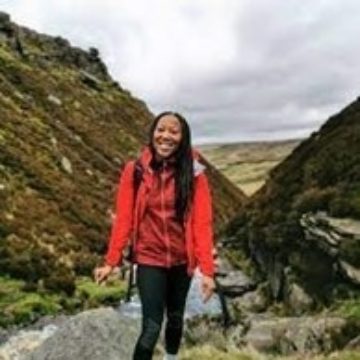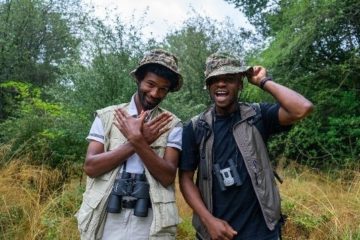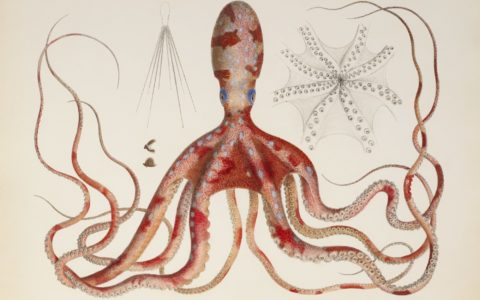Celebrating Black leaders in nature
It’s Black History Month, and we’ll be publishing several blogs that highlight the many contributions made by the Black community in conserving, studying and celebrating nature, throughout history and today.
Published on 2nd October 2023
In an upcoming blog one of our collaborators, historian Dr Christina Welch, will be sharing the Black stories and connections that she has found within our collections.
To start the month, we are highlighting some of the great initiatives that bring together Black people with an interest in nature, to increase representation and share a love of natural world.
If you are in an organisation not mentioned here and would like to speak to us, or be featured, contact us on info@linnean.org.

Rhiane Fatinikun – founder of Black Girls Hike U.K
Rhiane Fatinikun is an outdoors ambassador and campaigner, working to expand access to and representation in the outdoors for Black women and other marginalised groups. She founded Black Girls Hike in 2019 to challenge stereotypes and the lack of representation in outdoor activities.
Today, Black Girls Hike U.K. provides a safe space for Black women to explore the outdoors. They host nationwide group hikes, outdoor activity days and training events.
If you are a black or mixed race cis or trans woman, or non-binary person, you can join one of their hikes or events in the UK and worldwide. To support their work, you can volunteer with their Duke of Edinburgh scheme, or anyone can donate to support Black Girls Hike’s vital activities.
Follow Rhiane on Instagram @rhianesworld.

Ollie Olanipekun and Nadeem Perera – Flock Together
Flock Together started life as a birdwatching club in 2020. It still runs regular birdwatching walks and events for people of colour, to help facilitate people’s first steps into nature. However, it also aims to bring the masses into the outdoors and redefine how we see nature as a whole.
The organisation was established by Ollie Olanipekun and Nadeem Perera.
Ollie Olanipekun is an award-winning Creative Director who’s built social responsibility into every facet of his work, pioneering meaningful ways to enact change and rethink narratives. As a mentor and associate lecturer at UAL, Ollie also works to build smoother pathways into the creative industries for the next generation of “non traditional” creatives.
Nadeem Perera is a wildlife TV presenter (you may have seen him on BBC’s Springwatch), author and activist. Before founding Flock Together he was a sports coach and now he works with young people in schools and the community to share his love of nature.
Find out more information at the Flock Together website, and @flocktogether.world on instagram.

Tanisha Williams – Founder of Black Botanists Week
Tanisha is a scientist who, alongside her research, is working to help Black people who love plants, in whatever form that takes, to come together.
Her doctoral work studied the response of South African Pelargonium species to climate change. She is now undertaking a postdoctoral fellowship in botany at Bucknell, where she uses genetics research to aid the conservation of rare Pennsylvania plants.
In 2020 she founded #BlackBotanistsWeek, an online campaign to celebrate Black people who love plants.
Tanisha has won many awards for her research and outreach – including our 2023 Bicentenary Award for early career researchers.
Black Rootz
Black Rootz is a community of growers housed at Wolves Lane Horticultural Centre, North London. It is a community of experienced growers working to tackle food insecurity, as well as empowering Black and Minoritised growers. Part of the Ubele initiative, it is the first multigenerational, Black-led growing project in the UK.
Black Rootz was established in Spring 2019, but the food growing experience of its members dates back as far as the 1950s. Many of those invited to the UK as part of the Windrush generation would grow useful plants in their back gardens. This meant that they could eat the familiar foods they had grown up with like sweet potatoes, exotic squashes and tomatillo, but also have a reliable source of food when times were tough.
Today, the older generation on the Black Rootz team are able to share their wealth of growing experience, and want to pass down their skills to the next generation.
You can find out more about Black Rootz and support their work by contributing to the Ubele Initiative.
